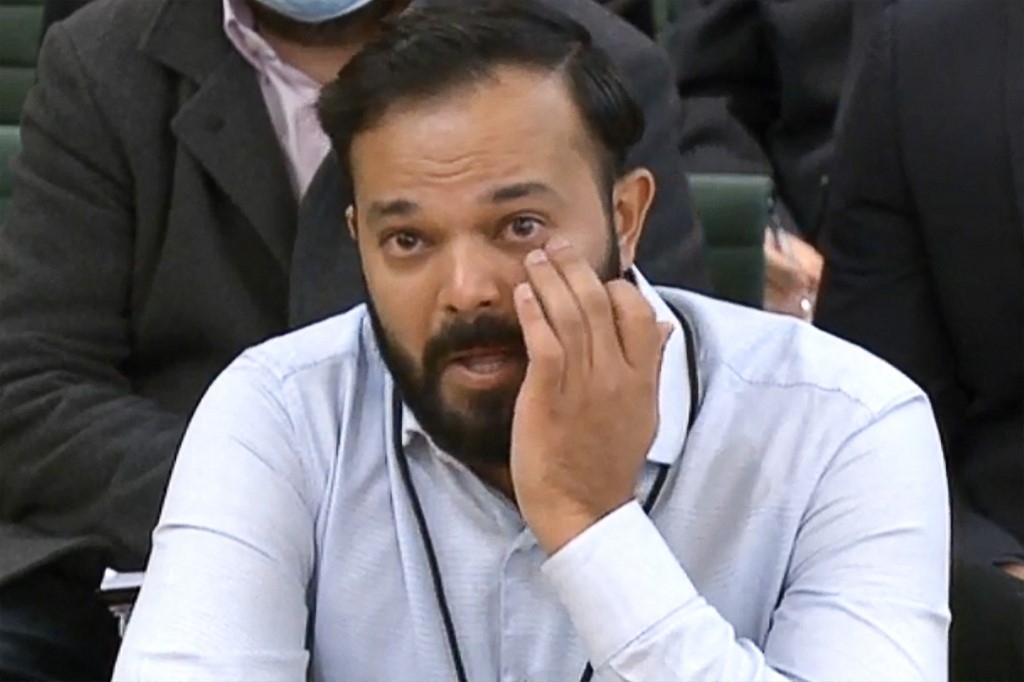Azeem Rafiq: Institutional racism and the culture of denial

In September this year, a report into the racism experienced by cricketer Azeem Rafiq while playing for Yorkshire County Cricket Club (YCCC) found that there was "insufficient evidence to conclude that Yorkshire County Cricket Club is institutionally racist".
The report findings said: "The panel were unanimous in concluding that it could not reach a finding of institutional racism on the basis of insufficient evidence and the panel was not reaching a conclusion that there was no evidence of institutional racism.”
For observers of how similar incidents have been handled, not just across several different sports but also in wider British society, this finding did not come as a surprise
For observers of how similar incidents have been handled, not just across several different sports but also in wider British society, this finding did not come as a surprise.
The recurring theme across most of these situations is that while actions and statements from individuals may be identified and described as racist, these are nearly always found to be in isolation from any institutional or structural enablers.
Take for example the report of the government’s Commission on Race and Ethnic Disparities, published on 31 March 2021. The report goes as far as censuring those who use the term institutional racism, questioning “whether a narrative that claims nothing has changed for the better, and that the dominant feature of our society is institutional racism and White privilege, will achieve anything beyond alienating the decent centre-ground”.
New MEE newsletter: Jerusalem Dispatch
Sign up to get the latest insights and analysis on Israel-Palestine, alongside Turkey Unpacked and other MEE newsletters
'Frankly disturbing'
The Runnymede Trust, a race equality think tank, criticised the commission saying it “had no interest in genuinely discussing racism” and had produced a script for 10 Downing Street, adding: “The least the commission could have done is acknowledge the very real suffering of Black and minority ethnic communities here in the UK.”
It continued: “The very suggestion that government evidence confirms that institutional racism does not exist is frankly disturbing.”
The commission’s report sets the bar high for the application of the term, stating that it can only be applied “when deep-seated racism can be proven on a systemic level and not used as a general catch-all phrase for any microaggression, witting or unwitting”.
This is perhaps one of the areas where the report falls short. There is a lack of understanding and empathy towards victims, who according to this report must carry both the burden of abuse and proof to hold an establishment to account for racism on a systemic level. But as well as that, there’s a fundamental misunderstanding of how power works.
To put this into perspective, YCCC was founded in 1863 and is the most successful team in English cricketing history, having won 33 County Championship titles. It is one of only 18 first-class county clubs within the domestic cricket structure of England and Wales.
Former cricketer Rafiq on the other hand recounted earlier this month, in front of the Department for Digital, Culture, Media and Sport (DCMS) committee, how his "deplorable treatment" within the game started at the age of 15, when he was “pinned down” at his local cricket club and forced to drink red wine.
In September 2020, he spoke to ESPN about how his time playing for YCCC left him contemplating taking his own life. “I know how close I was to committing suicide during my time at Yorkshire," he said. “I was living my family's dream as a professional cricketer, but inside I was dying. I was dreading going to work. I was in pain every day.”
YCCC was approached by MEE for a comment but there was no response at the time the article went to print.
Complaints 'ignored'
When Rafiq reported the racist behaviour he was experiencing at YCCC, these complaints were “ignored” by the club. “Yorkshire don't want to listen and they don't want to change," Rafiq said. "And part of the reason for that is the people who were involved in the incidents I'm talking about are still at the club. They just want to sweep it under the carpet.”
This is a vivid demonstration of the practical barriers and challenges an individual raising complaints against what he describes as systemic racist abuse. In this case, how could one person be expected to prove that “deep-seated racism” exists within a system that enables and promotes the alleged perpetrators?
How could one person be expected to prove that 'deep-seated racism' exists within a system that enables and promotes the alleged perpetrators?
And what chance is there of achieving justice when the organisation investigates itself? In this case, Rafiq’s incredible efforts to hold YCCC to account led to an investigation, which concluded that racist language was good-natured “banter”.
In fact, the club’s findings stated that “it was not reasonable for Azeem to have been offended by [the other player] directing equally offensive or derogatory comments back at him in the same spirit of friendly banter".
This is all before one considers the economic and social risk that one must take when raising a complaint of this magnitude against an employer. When asked at the DCMS committee why he returned to the club where he had suffered this abuse and bullying in 2016, Rafiq answered that he “was in a position where putting food on the table was difficult. That’s why I went back”.
One can only hope that the incredibly moving and visceral testimony given by Rafiq last week, and the repercussions that this case has already had at YCCC and beyond, is a turning point.
The way that we think and judge what constitutes institutional racism needs to change to reflect reality and power structures in society.
The views expressed in this article belong to the author and do not necessarily reflect the editorial policy of Middle East Eye.
Middle East Eye delivers independent and unrivalled coverage and analysis of the Middle East, North Africa and beyond. To learn more about republishing this content and the associated fees, please fill out this form. More about MEE can be found here.





